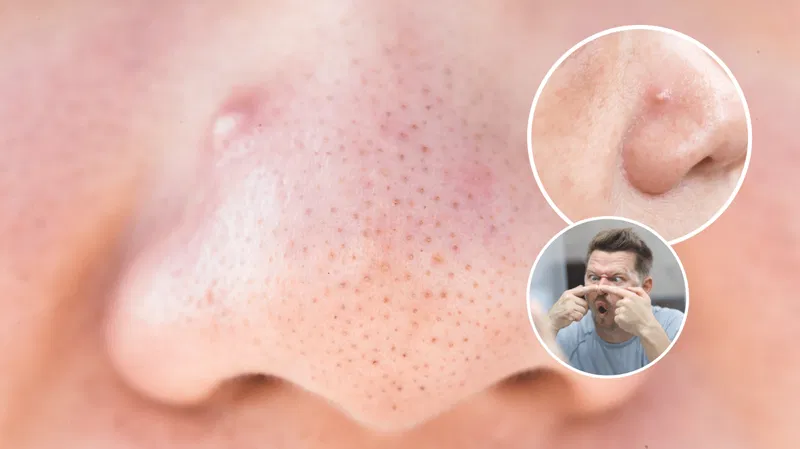Inadequate sleep does more than just leave you with dark circles. While the short-term effects include brain fog, difficulty concentrating, and fatigue, the long-term consequences are much more severe. It’s essential for everyone to aim for at least 8 hours of quality sleep, though individual needs may vary depending on factors like age and occupation. Unfortunately, various issues such as stress and health conditions like sleep apnea can interfere with achieving restful sleep. The long-term impact of sleep deprivation can lead to both physical and mental health problems.
Here are some potential health risks associated with chronic sleep deprivation or insomnia:
- Skin Aging Lack of sleep can make you appear tired and older than your actual age. Sleep-deprived individuals often experience dull skin and puffy eyes. Over time, chronic sleep loss can lead to lackluster skin, dark circles, and fine lines, which diminish your skin’s vitality. During deep sleep, growth hormone is released, which is essential for skin repair and combating the effects of stress. Without adequate sleep, your skin cannot properly recover, making sufficient rest crucial for maintaining healthy skin.
- Dementia According to WebMD, both excessive and insufficient sleep can contribute to cognitive decline, with inadequate sleep significantly increasing the risk of dementia. If you’re having sleep difficulties, particularly in your 50s and 60s, it’s advisable to consult a healthcare provider. Although sleep issues do not necessarily indicate dementia, addressing them early can help identify underlying causes and mitigate potential risks.
- Cardiac Problems Sleep deficiency is closely linked to a range of serious health issues, including heart disease, heart attacks, heart failure, irregular heartbeat, high blood pressure, stroke, and diabetes. The damage caused by insufficient sleep can be severe and, in some cases, irreversible. Research shows that 90% of people with insomnia also have another underlying health condition, with sleep deprivation contributing to cardiovascular risk factors such as high blood pressure, impaired glucose metabolism, disrupted hormonal regulation, and increased inflammation.
- Obesity Adequate sleep is essential for maintaining a healthy Body Mass Index (BMI). Individuals on a weight loss plan should prioritize getting 7-8 hours of sleep each night. Lack of sleep is strongly linked to increased hunger and appetite, which can lead to obesity. One study found that people who sleep less than six hours a night are nearly 30% more likely to become obese compared to those who get 7-9 hours of sleep. Multiple epidemiological studies have also connected short sleep duration and poor sleep quality to an elevated risk of obesity.
- Respiratory Problems Frequent awakenings during the night can increase your susceptibility to respiratory infections like the common cold and flu. Additionally, existing respiratory conditions, such as chronic lung disease, can worsen due to insufficient sleep. This is because sleep deprivation weakens the immune system, preventing it from effectively defending against viruses and bacteria. The immune system relies on sleep to produce infection-fighting components like antibodies and cytokines.
- Impaired Cognitive Function Sleep plays a critical role in thinking and learning. Insufficient sleep disrupts cognitive processes in multiple ways, particularly affecting students. Sleep deprivation and daytime sleepiness can lead to lower grades, increased risk of academic failure, compromised learning, and mood disturbances. Additionally, a lack of sleep impairs attention, reasoning, concentration, alertness, and problem-solving abilities, making it difficult to learn effectively.
- Depression A recent study by researchers at Johns Hopkins University found a strong link between sleep problems and depression. Individuals with insomnia are ten times more likely to develop depression than those who get a good night’s sleep. Patrick H. Finan, a behavioral medicine expert and sleep researcher at Johns Hopkins Hospital, explains that poor sleep can make it harder to regulate emotions, increasing vulnerability to depression over time. Moreover, depression itself is associated with sleep difficulties, including reduced restorative slow-wave sleep.
- Endocrine System Disruption Sleep deprivation can significantly impact hormone production, potentially leading to endocrine disorders, particularly metabolic issues. Disruptions in growth hormone production can negatively affect muscle mass growth, cell repair, and tissue regeneration, among other functions. The proper functioning of the pituitary gland, which is crucial for hormone regulation, also depends on adequate sleep.







